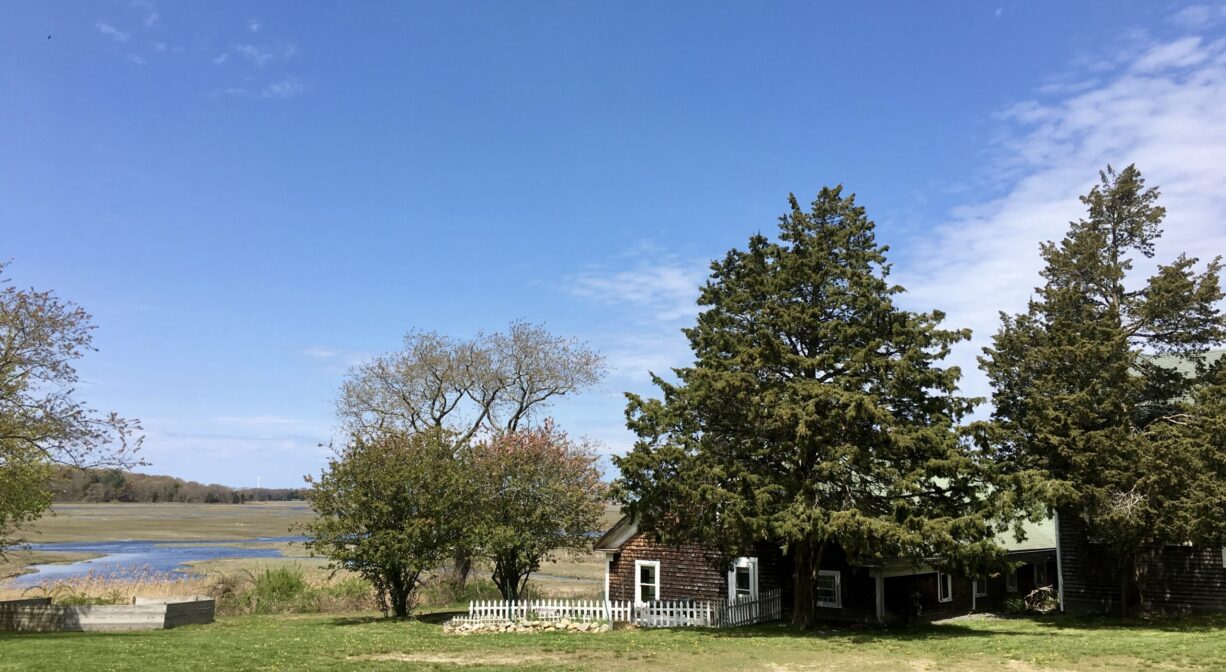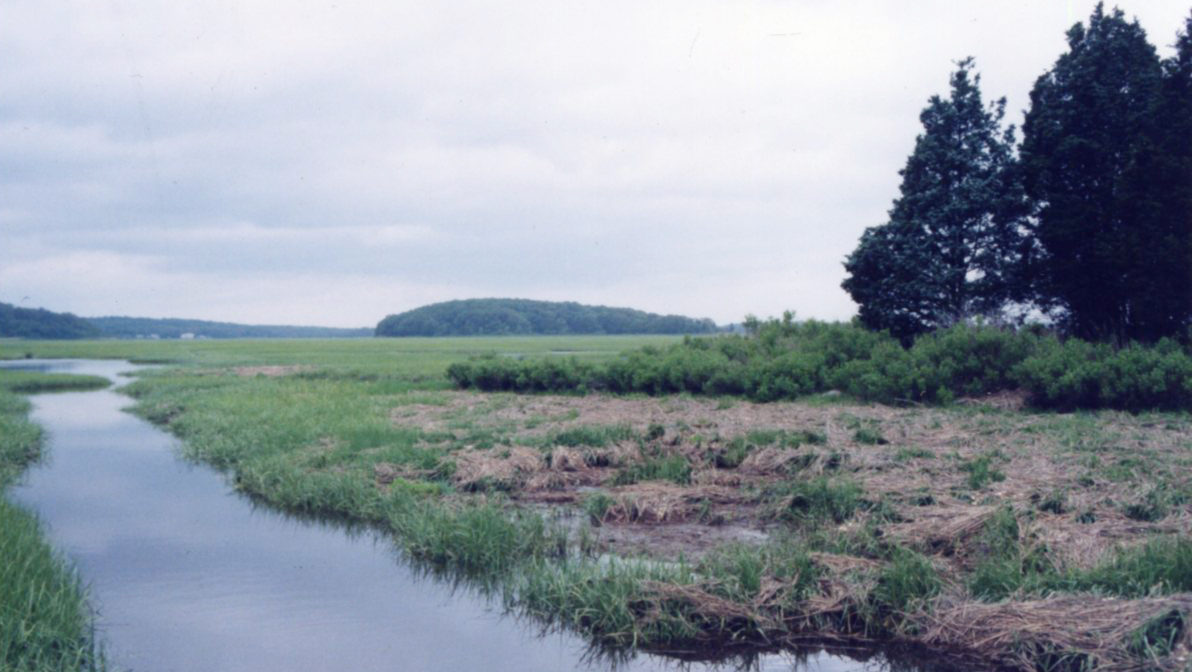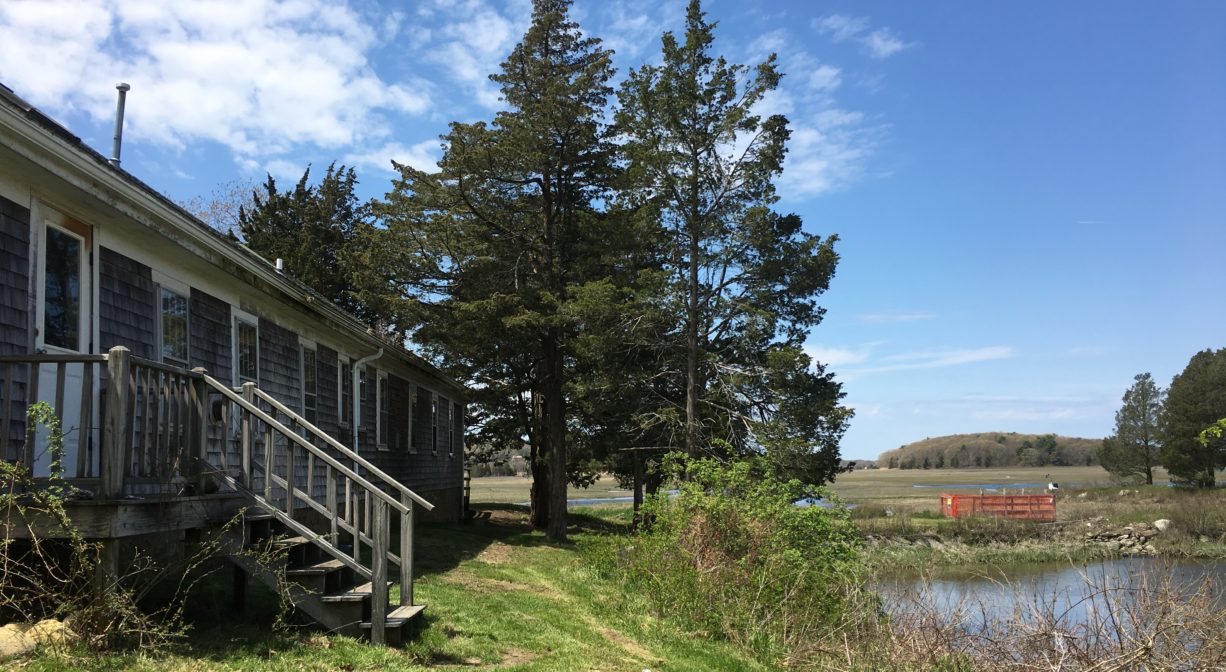76 Ferry Hill Road, Marshfield, MA, USA
Owned By: JPH Organization at Ferry Hill
Community center for wellness, healing and transformation on the banks of Little’s Creek in Marshfield. Formerly known as Ferry Hill Center. Former longtime location of the Marshfield Branch YWCA. For a short walk nearby, look for Ferry Hill Thicket, diagonally across the street. This is one of the locations of our summer-only Yoga at the River’s Edge program.
Features
Now operated by the James P. Harrington Organization, this property was known as Ferry Hill Center and Ferry Hill Day Camp from 2019 to 2022. Prior to Ferry Hill’s purchase of the property in 2019, this was the longtime location of the Marshfield Branch of the Cambridge YWCA.
The original land owner was Victor Belanger, a gentleman farmer. His 21-acre estate — a working farm which included this property and much more — was large enough that this section of town was known as “Belangerville.”
After Belanger, Dr. Charles H. Thurber established a summer estate in the house at the top of Ferry Hill Road. Thurber was a professor at various colleges and the Editor in Chief at Ginn & Co., a publisher of textbooks. In order to prevent the property on which JPH Organization at Ferry Hill stands from being developed as house lots, Thurber purchased it for himself. Each summer he offered “The Red Barn” as a “family camp” for employees at Ginn & Co. This was a common practice at the time for factory owners — providing a summer respite for employees.
After Thurber’s death in 1938, the estate passed to his daughter, Mrs. William Tanner. Mrs. Tanner, a resident of Cambridge, was very involved in the Cambridge Branch of the YWCA. In 1961, she donated the property — which included “The Red Barn” — to the Cambridge YWCA. Run by staff from Cambridge as well as a dedicated team of volunteers, it was put to use as a summer camp for children. Mrs. Tanner also provided funds for the construction of a caretaker’s cottage, and for much-needed improvements to the barn, including heat and winterization.
As the local population grew, the YWCA saw that it could offer programs for women and children at its Marshfield location year-round. Programming focused around the needs of women who were home full time. Childcare was provided on-site, and rates for both classes and camp were intentionally maintained as affordable. The facility served as a lifeline for many families. It was run primarily volunteers, including Madeleine McDonald, Genevieve Guimond, Martine Anderson, Joanne Sullivan, and Dottie Carpenter. A staff member from Cambridge made weekly visits to oversee operations.
By the end of the 1960s, the volunteer staff had grown to about 200 people. The Marshfield YWCA was a busy place! Officials in Cambridge recognized that sustained success would require a resident staff member. In 1970, Jay O’Callahan was hired as the new caretaker of the property. Linda O’Callahan, a teacher who had accompanied her husband to the caretaker interview, was offered a position as Program Director. The offer was so casual that Linda had to make follow-up calls to confirm that she had actually been offered a job!
Linda O’Callahan led the Marshfield Branch of the YWCA for 40 years, first as Program Director and later as Branch Director. Upon her retirement, she was succeeded by Kim Nashawaty. The facility continued to offer affordable year-round programs, as well as a summer day camp, until 2018, when the YWCA decided to sell the property. A dedicated group of community members facilitated the purchase the property in 2019 in order to prevent development. In 2022, the JPH Organization formed with a two-part mission to preserve and protect this historic property and to provide accessible and affordable family wellness programming for the community.
About the neighborhood: According to W. Ray Freden’s blog post “Ferry Hill’s Early Days,” Ferry Hill was named for the ferry on the area’s eastern shore, which was ordered by the Plymouth Colony Court in 1638 at the spot where the Pilgrim Trail crossed the North River (now the South River). Jonathan Brewster was the first ferryman. In 1641, he sold the service, which transported both men and cattle across the river to Scituate, to Barker and Howell. Ralph Chapman later ran the ferry service, and then in 1712 Benjamin White, grandson of Peregrine White, took over. There is an historic marker for White’s Ferry at today’s Sea Street Bridge.
The 70-acre, 70-foot high hill was forested when European settlers arrived in the area. Its northern end became a mecca for shorebird hunters in the 1800’s. Numerous hunting blinds were established, targeting species such as yellowlegs, whimbrels, long billed curlews, black-bellied plovers, golden plovers, and sanderlings. After the railroad came to Marshfield in 1871, sportsmen would often travel to Ferry Hill by way of the Sea View train station, and hire locals to guide them. This continued until 1918, when the Migratory Bird Treaty Act outlawed shorebird hunting, and limits/seasons were established for hunting waterfowl.
In 1888, George Ireland bought all the available land on Ferry Hill and began developing it into small lots, geared for tents and hunting camps. In the mid-1920’s, the Crosby Water Co. built a pumping station and water storage tank on Ferry Hill (on today’s Ireland Road, by Carleton Road). Wells were established nearby, in a wetland area with springs that is today’s Ferry Hill Thicket. The water company supplied not only Ferry Hill, but the Sea View and Humarock neighborhoods nearby. Larger, more permanent houses soon replaced the tents and hunting camps. By 1930, about 100 homes stood on Ferry Hill. Due to insufficient wastewater management, the wells became polluted and the Crosby Water Co. shut down in 1946.
This land is within the region of the Massachuseuk (or Massachusett) Native American tribe.
Trail Description
There is a small network of trails on the property, but they are not open to the public — only the guests of the organization. But check out the Ferry Hill Thicket conservation area, which is located just down the street.
Habitats and Wildlife
This property is home to numerous cedar trees. It offers a spectacular view of the salt marshes, and is a prime spot for birding.
The property is located at the edge of Little’s Creek. The creek originates in springs on Telegraph Hill and Carolina Hill in Marshfield. Following the course of Church and Elm Streets, it flows through Keene’s Pond and then winds through the salt marsh before emptying into the South River on the northwest side of Ferry Hill.
The South River originates deep in Duxbury. Its source is in the Round Pond area, and from there it winds unobtrusively through the woods for several miles. Although one can view it from Route 3, and also from both the South River Bog and the Camp Wing Conservation Area, it remains a narrow and mostly un-navigable stream until just below Veterans Memorial Park. From there it flows through South River Park, behind the playground of South River School, and under the Willow Street and Francis Keville Bridges. Wider at that point, and navigable at most tides, its course winds through the marshes as it runs parallel to Route 139, all the way to Rexhame. From there the river turns northward. It flows for 3 miles between Humarock and the mainland to Fourth Cliff, where it joins the North River at its outlet to the sea.
Historic Site: No
Park: No
Beach: No
Boat Launch: No
Lifeguards: No
Size: 9.2 acres
Hours: Dawn to Dusk
Parking: No public parking available.
Cost: See JPH website for details.
Facilities:
No public facilities. Please inquire about community programs.
Dogs: No
Boat Ramp: No
ADA Access: Yes
Scenic Views: Yes
Waterbody/Watershed: Little's Creek (South River watershed)















